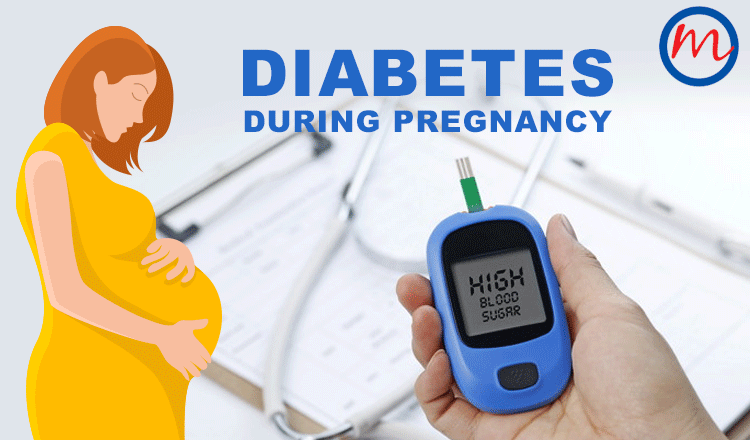Diabetes is a health condition that goes hand in hand with various high-risk diseases, the predominant of which is heart disease.
Heart disease is very prevalent in our population and is a serious condition—it is considered the leading cause of death in both male and female patients. People with diabetes are twice as likely to have heart disease or a stroke than a non-diabetic—and that too at a younger age. The longer you have diabetes, the more likely you are to have heart disease.
But the future is not all that bleak for diabetics, provided their health is well managed at every stage. Proper attention and professional care can significantly lower your risk for heart disease. In fact, you can improve your heart health by tweaking certain lifestyle habits. Those changes will help you manage diabetes better too.
What Is Heart Disease?
“Heart disease” includes several ailments that afflict your heart, whereas the term “cardiovascular disease” is all-encompassing and includes all types of heart disease, stroke, and blood vessel disease. The most common heart disease is coronary artery disease, which affects blood flow to the heart.
Coronary artery disease is caused by plaque build-up in the walls of the coronary arteries that supply oxygen and blood to the heart. Plaque, made of cholesterol deposits, make the inside of arteries thin and decrease blood flow. This process is called atherosclerosis, or the hardening of the arteries. Decreased blood flow to the heart can lead to a heart attack. And if the blood flow to the brain decreases, it can cause a stroke.
Diabetes and its Impact on the Heart
High blood sugar is insidious and slowly causes damage to the blood vessels and nerves surrounding your heart.
People with diabetes most likely have other conditions too that increase heart disease risk:
- High blood pressure increases is the force of blood flow through your arteries, which can damage artery walls. Having both high blood pressure and diabetes can greatly increase your risk for heart disease.
- Too much LDL or bad cholesterol in your blood lead to the formation of plaque on damaged artery walls.
- High triglycerides(a type of fat) and low HDL (good cholesterol) or high LDL cholesterol are said to harden the arteries.
These conditions can be entire without symptoms, so it is imperative that you seek a proficient doctor’s guidance when you have diabetes. Your doctor can check your blood pressure and arrange for a simple blood test to check your LDL, HDL, and triglyceride levels.
Here are some other factors that may contribute to your risk for heart disease:
- Smoking
- Being overweight
- Insufficient physical activity
- Eating a diet high in saturated fat, trans fat, cholesterol, and sodium
- Drinking alcohol
People with diabetes are also more prone to heart failure. Heart failure is a condition in which your heart can’t pump blood efficiently. This can result in swelling in your legs and fluid build-up in the lungs, making it hard to breathe. Heart failure usually gets worse over time, but prompt diagnosis and treatment can help relieve symptoms and stop or delay the condition from deteriorating.
Therefore, it is imperative that you get regular check-ups done by a diabetologist to keep your heart healthy.
Testing for Heart Disease
The diabetologist will evaluate your blood pressure, weight, and cholesterol levels to understand your overall risk for heart disease. In addition, the doctor may also recommend other tests, which include:
- Electrocardiogram (ECG or EKG): measures the electrical activity of your heart to gauge your heartbeat.
- Echocardiogram (echo): examines the thickness of your heart muscle and its pumping capacity.
- Exercise stress test (treadmill test): evaluates your heart functions when working hard.
How to Care for Your Heart and Your Health
Making the following lifestyle changes can significantly help lower your risk for heart disease, while also helping you manage diabetes:
- Wholesome diet.
Ensure that your diet consists of fresh fruits and vegetables, lean protein, and whole grains. Eat fewer processed foods. Drink 8 glasses of water, reduce sugary drinks, and avoid alcohol.
- Healthy weight.
If you’re overweight, losing even a modest amount of weight can considerably slash your triglycerides and blood sugar. Modest weight loss is approx. 5% to 7% of your body weight, which is about 10 to 14 pounds for a 200-pound person.
- Active lifestyle.
Staying physically fit makes your body more receptive to insulin. Insulin is a hormone that allows cells in your body to use blood sugar for energy. Keeping insulin levels stable will help manage your diabetes. In addition, moderate physical activity also helps control blood sugar levels and in turn lowers your risk of heart disease. Try to incorporate moderate physical activity, such as brisk walking, for at least 2.5 hours per week.
- Manage your ABCs:
According to CDC guidelines:
- A: Get a regular A1C test to measure your average blood sugar over a period of two to three months; aim to stay in your target range as much as possible.
- B: Try to keep your blood pressure below 140/90 mm Hg (or the target your doctor sets).
- C: Manage your cholesterol levels.
- s: Stop smoking or don’t start
- Manage stress.
Stress is considered a silent killer that can elevate your blood pressure. It can also cause unconscious behaviors, such as consuming too much alcohol or overeating just for stress relief. Instead, try deep breathing, yoga, or get support from friends and family to control your stress levels.
Consult Your Diabetologist Now
A diabetologist will give you expert guidance and closely monitor your health, while also helping you incorporate lifestyle measures to prevent heart disease or heart failure. Moreover, your doctor can prescribe medication to help keep your blood sugar, blood pressure, cholesterol, and triglycerides close to your target levels. Diabetologists keep track of the evolving changes in medical technology and integrate them into their patient care to help relieve symptoms. It will greatly benefit you to work closely with a diabetes specialist for timely intervention in case of complications and to circumvent larger health issues such as heart disease.




